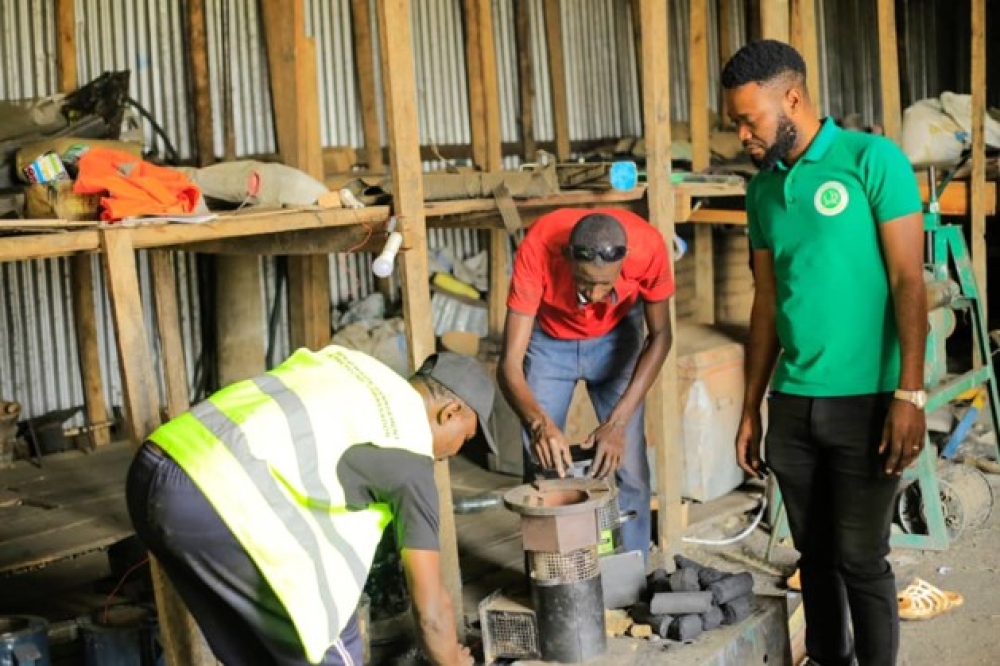In this section
In this sectionWhen Global Crises Escalate, Local Solutions Are the Way Out
Energy poverty threatens communities worldwide, intensifying vulnerability to safety threats, health problems, and economic instability. At the same time, the humanitarian sector is grappling with a pressing paradox: as global crises escalate, access to funding is becoming increasingly scarce and more unpredictable.
In this challenging humanitarian landscape, powerful yet often overlooked solutions are addressing these critical issues, led by the displaced communities themselves: refugee-led organisations (RLOs) and businesses (RLBs). These local innovators are designing and implementing sustainable, context-specific energy solutions that go beyond meeting immediate needs, creating ripple effects of resilience, safety, and opportunity. As external support becomes less reliable, their role underscores the urgent need for a fundamental strategic shift, one that cultivates local capacity to deliver and sustain long-term energy access for crisis- and conflict-affected communities. Built on first-hand experience and a deep understanding of community dynamics, cultural nuances, and on-the-ground challenges, RLOs embody this new approach by ensuring that solutions are co-created rather than imposed.
The Coordination Unit of the Global Platform for Action for Sustainable Energy in Displacement Settings, through the Transforming Humanitarian Energy Access programme, is thrilled to introduce the Refugee-Led Energy Organisations Hub. This dynamic platform is designed to champion and foster new partnerships with innovators redefining energy access delivery in crisis settings. As an open resource, it serves as a gateway to learn, connect and work with resilient, innovative, community-led solutions that harness untapped potential to revolutionise the humanitarian response.
From small-scale pilots to building markets, refugee-led energy initiatives demonstrate measurable impact across key humanitarian objectives, including protection, environmental sustainability, and economic empowerment. Their success makes a compelling case for greater investment in local leadership. Over time, various programmes have emerged to provide catalytic support to refugee-led solutions, including the Refugee-led Innovation Fund (UNHCR Innovation), Refugee-led Research Hub, and Inkomoko.
A Strategic Opportunity for Collaborative Investment
Progress now depends on a concerted effort to move beyond isolated projects toward sustainable, scalable systems. This platform serves as a bridge to connect international resources with local innovation.
We urgently call on humanitarian actors, donors, impact investors, and energy corporations to work with these innovators. To collectively unlock their immense potential to transform the humanitarian sector, it will be vital to develop targeted funding to support the sustainable growth of these businesses, form technical partnerships to enhance their capabilities, and advocate for their formal inclusion in national and regional energy planning and funding mechanisms.
The THEA programme is paving the way with tailored micro-grants to support the work of innovative RLBs and RLOs working on energy access across Uganda, Kenya and Ethiopia, but much more inclusive financing is needed to increase the impact of promising community-led initiatives.
Visit the site to learn more about these pioneers, the impact they have in displaced communities, and the support they need to power a more resilient and sustainable future.
Together, we can turn energy access into a cornerstone of crisis response and long-term resilience!
The THEA programme is funded by the UK government via the Transforming Energy Access platform and implemented by Mercy Corps in partnership with the GPA and Ashden. Learn more about THEA’s work to change how energy is delivered in humanitarian settings here.
Visit the Refugee-Led Energy Organizations Hub - energypedia
Last updated: 07/10/2025


